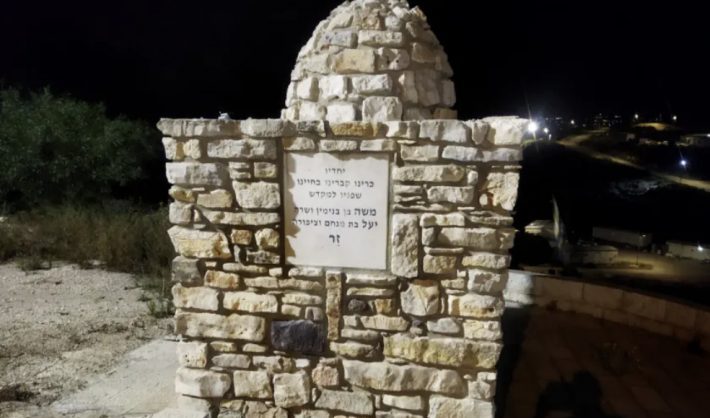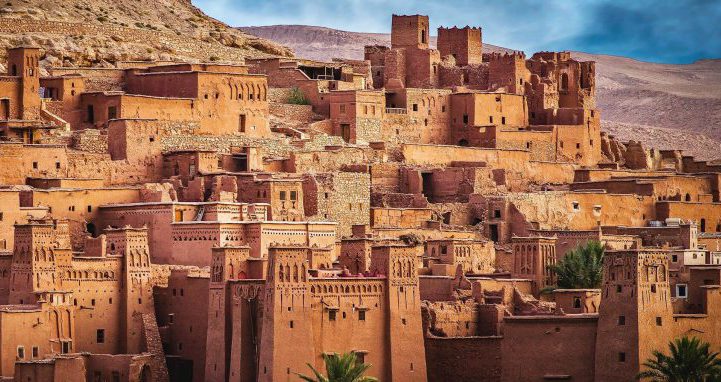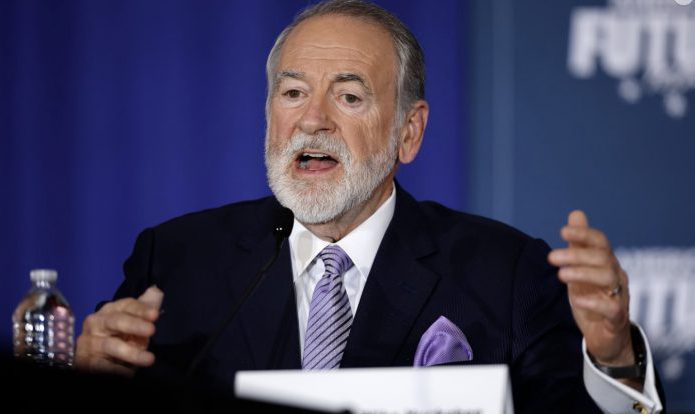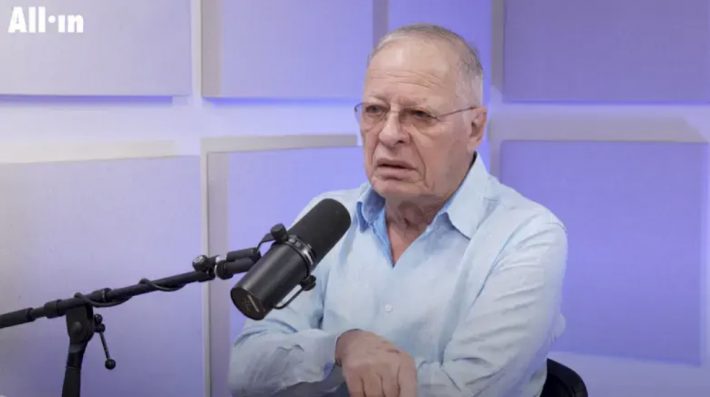Moshe Zar, Icon of Samaria Settlement Movement and Israeli War Hero, Dies at 88
Moshe Zar, a founding figure of the Jewish settlement movement in Judea and Samaria and a veteran of Israel’s elite Unit 101 and Paratroopers Brigade, passed away on Friday at the age of 88. His funeral will take place on Sunday at 17:00 at Mitzpe Tzva’im, near Ramat Gilad, where he will be buried in the grave he prepared on the soil he cherished.
In a moving family statement, his loved ones mourned:
“The crown of our head has fallen. Woe to us, for we are broken… the redeemer of Samaria’s lands and hero of Israel’s wars… May the clods of the Land of Israel, which he loved with all his soul and for which he gave his life, rest lightly upon him.”
Zar was one of the early founders of Karnei Shomron and a pivotal figure in the land acquisition efforts that shaped modern Jewish presence across Samaria. Following the Yom Kippur War and the rise of the Gush Emunim movement, Zar began acquiring thousands of dunams across 30 Arab villages using a Jordanian company to facilitate registration.
Despite his fierce Zionism, his path was marked by violence. In 1983, he survived an assassination attempt when an Arab landowner attacked him with an axe and a gun, leaving him seriously injured. He later recovered after a long hospitalization. Zar was also linked to the Jewish Underground, serving as the driver in the 1980 bombing that maimed Nablus Mayor Bassam Shaka.
Karnei Shomron Local Council head Yochanan Koznitz remembered him as “a model figure… driven by deep faith in the right of the Jewish people to return to their land.”
Yossi Dagan, head of the Shomron Regional Council, described him as “a legend… a fearless fighter” whose life’s work laid the foundation for much of today’s Jewish presence in the region. Dagan recalled Zar’s final request during a recent hospital visit: “Succeed.”
The Yesha Council mourned his passing, calling him “the redeemer of lands and a hero of Israel’s wars,” and praised his “glorious legacy of pioneering and immense contribution to the settlement of Judea and Samaria.”
Zar’s commitment to the land of Israel was not just ideological — it was deeply personal. After his son Gilad was murdered in a 2001 terrorist attack, he purchased land where Gilad Farm was later established. It is now home to around 50 families.
Zar and his wife Yael raised eight children, all of whom remained active in the settlement enterprise. His son Rabbi Yonadav teaches at Har Bracha Yeshiva and is married to Atia Zar, daughter of Rabbi Moshe Levinger. His daughters Anat and Shlomit are involved in communities in Hebron and Samaria, and his son-in-law, historian Gershon Bar Kochva, was a founder of the Hebron seminary.
Even in his final year, following the outbreak of the Swords of Iron War, Zar continued to visit IDF bases, uplifting soldiers — including his own descendants — with words of strength and unity. During a visit to his grandson Achiya Shilo-Shoham, he recalled past battles and declared, “When the people of Israel are united, no one can defeat them.”
Quoting Psalm 29, he affirmed his faith to the end: “The Lord gives strength to His people; the Lord blesses His people with peace.”Moshe Zar, a founding figure of the Jewish settlement movement in Judea and Samaria and a veteran of Israel’s elite Unit 101 and Paratroopers Brigade, passed away on Friday at the age of 88. His funeral will take place on Sunday at 17:00 at Mitzpe Tzva’im, near Ramat Gilad, where he will be buried in the grave he prepared on the soil he cherished.
In a moving family statement, his loved ones mourned:
“The crown of our head has fallen. Woe to us, for we are broken… the redeemer of Samaria’s lands and hero of Israel’s wars… May the clods of the Land of Israel, which he loved with all his soul and for which he gave his life, rest lightly upon him.”
Zar was one of the early founders of Karnei Shomron and a pivotal figure in the land acquisition efforts that shaped modern Jewish presence across Samaria. Following the Yom Kippur War and the rise of the Gush Emunim movement, Zar began acquiring thousands of dunams across 30 Arab villages using a Jordanian company to facilitate registration.
Despite his fierce Zionism, his path was marked by violence. In 1983, he survived an assassination attempt when an Arab landowner attacked him with an axe and a gun, leaving him seriously injured. He later recovered after a long hospitalization. Zar was also linked to the Jewish Underground, serving as the driver in the 1980 bombing that maimed Nablus Mayor Bassam Shaka.
Karnei Shomron Local Council head Yochanan Koznitz remembered him as “a model figure… driven by deep faith in the right of the Jewish people to return to their land.”
Yossi Dagan, head of the Shomron Regional Council, described him as “a legend… a fearless fighter” whose life’s work laid the foundation for much of today’s Jewish presence in the region. Dagan recalled Zar’s final request during a recent hospital visit: “Succeed.”
The Yesha Council mourned his passing, calling him “the redeemer of lands and a hero of Israel’s wars,” and praised his “glorious legacy of pioneering and immense contribution to the settlement of Judea and Samaria.”
Zar’s commitment to the land of Israel was not just ideological — it was deeply personal. After his son Gilad was murdered in a 2001 terrorist attack, he purchased land where Gilad Farm was later established. It is now home to around 50 families.
Zar and his wife Yael raised eight children, all of whom remained active in the settlement enterprise. His son Rabbi Yonadav teaches at Har Bracha Yeshiva and is married to Atia Zar, daughter of Rabbi Moshe Levinger. His daughters Anat and Shlomit are involved in communities in Hebron and Samaria, and his son-in-law, historian Gershon Bar Kochva, was a founder of the Hebron seminary.
Even in his final year, following the outbreak of the Swords of Iron War, Zar continued to visit IDF bases, uplifting soldiers — including his own descendants — with words of strength and unity. During a visit to his grandson Achiya Shilo-Shoham, he recalled past battles and declared, “When the people of Israel are united, no one can defeat them.”
Quoting Psalm 29, he affirmed his faith to the end: “The Lord gives strength to His people; the Lord blesses His people with peace.”





